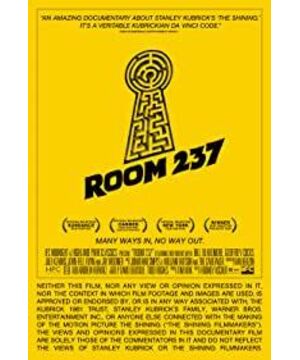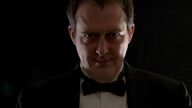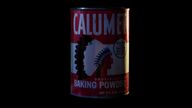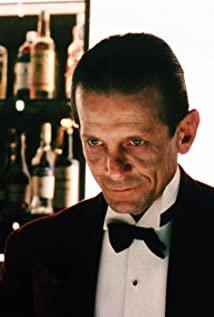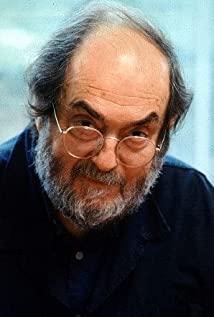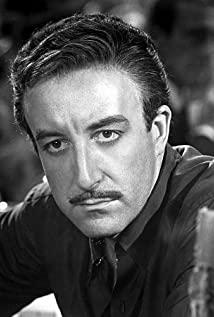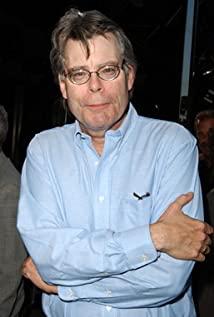5.25 Update
Correcting a mistake first, Kubrick does like to stay in the editing room and edit.
After watching some valuable documentaries about Kubrick, my judgment is mostly confirmed. This "documentary" by these film critics is basically bullshit. It also reminds me that not all "documentaries" are worth watching. Conspiracy theories and semiotics are really an insult to the visual language of cinema. Especially when I saw the documentary I once served Kubrick Kubrick's almighty assistant when he mentioned this "documentary" (referring to Room 237), and the slap in the face of various conspiracy theories, I know This "documentary" is really rubbish.
Back to The Shining. The aerial shot of the film was created because I wanted to use the tranquility at the beginning and the horror afterward to create a contrasting effect. Clothing is what the costume designer wants to have a rustic feel to create. The decor in the hotel was chosen from a myriad of different styles from countless hotels across the United States because Kubrick wanted authenticity. And the idea of an Indian cemetery is just because there are so many beautiful Indian themes in the collection. All of the above has nothing to do with the things that the brain made up about the Indians. Or, at least, Kubrick didn't make it clear that he thought so. Since there is no clear statement, and the design of costumes and props is directly handled by the corresponding experts, how can so many things be over-interpreted?
It is said that Kubrick is a perfectionist because he may take a shot many times, has high requirements for the actor’s emotions, is paranoid about the use of shots and composition, focuses on details, strives for precision, and does everything in detail. Almost everything is under control. Taking a lot of photos and collecting and reading a lot of information is to find the material for the story, to make the film more realistic, to maximize the visual effects and colors, not to make the so-called symbols have meaning.
———————————— The following is the original text
No matter how talented Kubrick is, I'm afraid he hasn't thought about everything in this documentary. I don't quite believe the "deep meaning" behind every second or even every frame mentioned in so many places in this documentary, it's too semiological. Of course, if there is conclusive evidence to slap in the face, I'd be happy to accept it.
Wouldn't the film's interpretation of Kubrick's cloud head portrait in The Shining title and the use of dissolves for transitions really not be excessive? In addition to the transition through the date and time, the Shining is almost all superimposed. Did Kubrick express his views with private goods at each superposition? If not, why not choose to do this kind of editing only where the idea needs to be expressed? And in the last part, trying to find a connection by reversing the opening and ending credits, or even connecting with other Kubrick films, is simply a forcible brain supplement. If Kubrick thought about these things when he was shooting, he would be too tired, not to mention that the editor was someone else (even if he edited according to Kubrick's instructions, the above problems still cannot be solved. answer)
This film does not have Kubrick's personal explanation, manuscripts, diaries, scripts, or interviews with core members of the film's creative team as the bottom line. Most of them are excessive interpretation of various symbols and various Kind of brain supplement. While it does answer some questions, especially on the historical side, it's instructive, but many are unconvincing and give the impression of forcing Kubrick. If such a documentary is regarded as a classic for perfect interpretation of The Shining, it is really similar to doing Chinese reading comprehension questions.
I still think that the first-hand information should prevail. Other unconvincing interpretations may deviate from the director's original intention. Offensive to fans. What’s even worse is that this kind of over-interpretation of brain supplementation can also be copied and pasted by so many people as their own film reviews published on social platforms, willing to act as repeaters. If you ask the reason, it may just answer you "you understand it doesn't mean others don't understand it" or "it's impossible to over-interpret it, because Kubrick is a genius" or "people are professional film critics, you can do what you want." Ah"... Anyway, as long as there are enough brain holes and enough brains to make up for it, as long as these interpretations can make me "stunned", who cares whether it is the director's original intention or not, I would rather distort and force the interpretation than frankly that I didn't understand it.
Finally, I look forward to finding first-hand information one day in the future. After all, Shining can really arouse people's curiosity.
View more about Room 237 reviews


